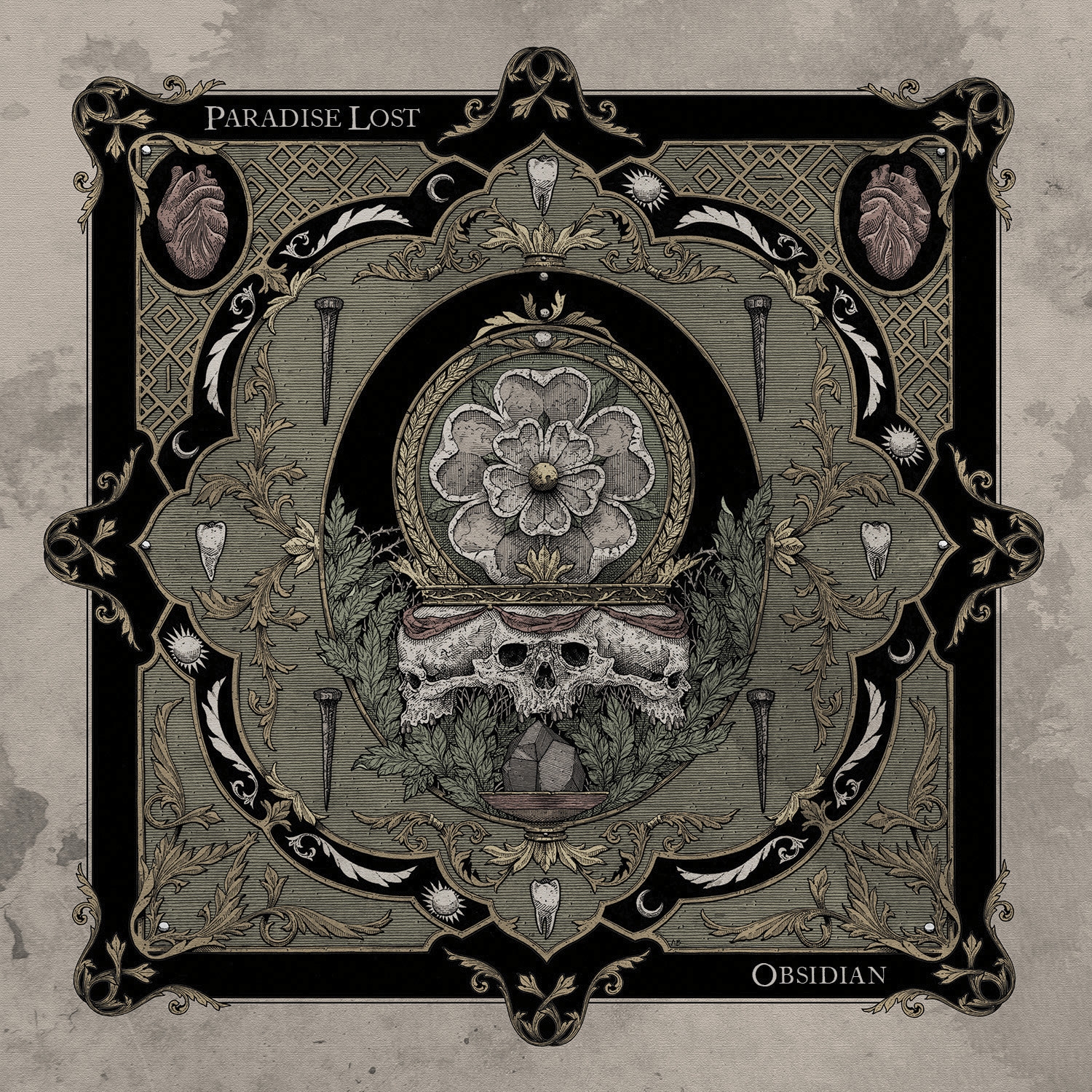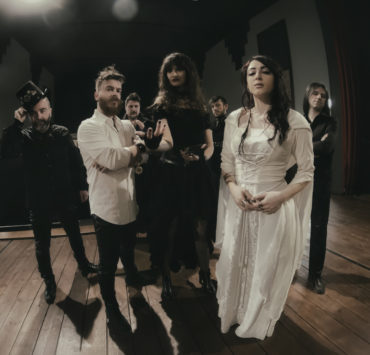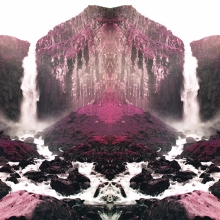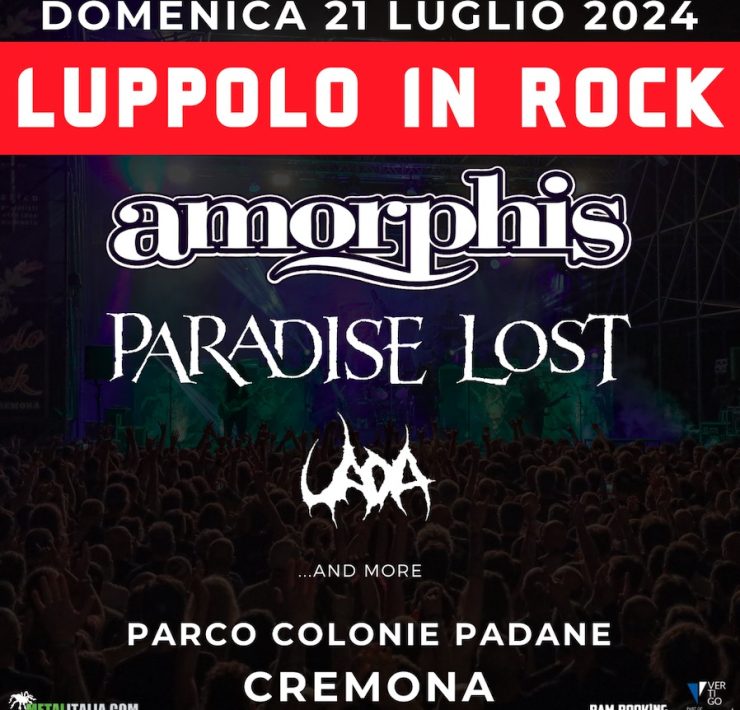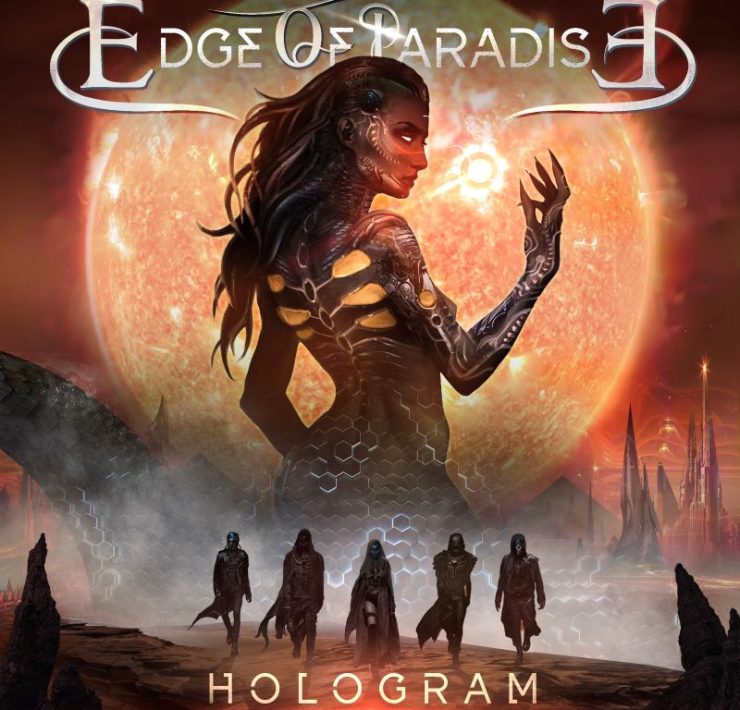PARADISE LOST – Intervista al chitarrista Greg Mackintosh
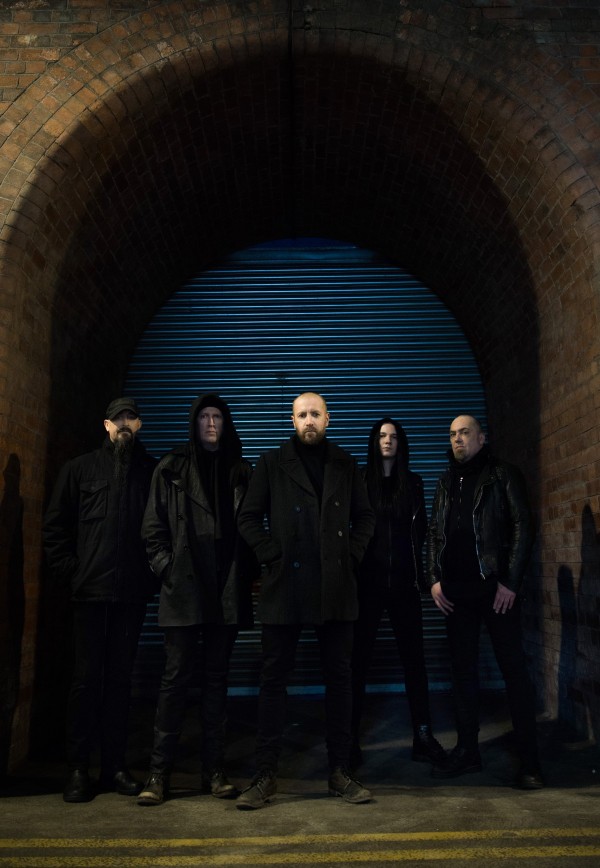
In occasione dell’uscita del nuovo album “Obsidian”, in programma venerdì 15 maggio, ho avuto il grande piacere di intervistare Greg Mackintosh, chitarrista e compositore della storica metal band inglese Paradise Lost.
Ciao Greg, benvenuto su Tuttorock, prima di tutto come stai in generale?
Ciao Marco, grazie! Probabilmente sto come stanno tutti gli altri al momento. Immagino che in Italia stiate peggio di qua. Siamo in pieno lockdown, quindi, voglio dire, quando non sto facendo interviste, faccio casino in studio guardando Netflix come chiunque altro.
Parliamo di Obsidian, il vostro sedicesimo album che uscirà il 15 maggio. Lo considero un altro capolavoro e il vostro album più vario, al suo interno c’è tutta la vostra storia musicale, puoi dirmi un po’ come è stato il processo di scrittura delle canzoni?
Il primo brano che abbiamo scritto per questo disco è stato “Fall from Grace”, che è probabilmente il più simile nello stile al disco precedente. Ma è solo perché in qualche modo dovevamo iniziare con il songwriting. Quindi è stato come un trampolino di lancio per fare nuovo materiale e ciò che abbiamo programmato è stato il fare un disco più vario questa volta. Ci siamo presi un po’ di tempo e, per ogni canzone che ci è venuta in mente, abbiamo pensato, cosa dovremmo fare con questo o cosa dovremmo fare con le nostre conoscenze? È nata una varietà di canzoni davvero fantastiche completamente diverse tra loro, un paio di canzoni, come la traccia di apertura “Darker Thoughts” e “Ending Days”, suonano molto diversamente tra loro. Sono cose che non so davvero da dove provengano musicalmente e mi chiedo cosa ci facciano lì. Sì, è un album molto eclettico e vario.
L’album inizia con gli strumenti acustici della meravigliosa traccia “Darker Thoughts”, hai scritto tu tutti gli spartiti per gli archi?
Sì. Ho creato tutti gli effetti con le tastiere e la maggior parte li ho semplificati. Ma poi abbiamo preso una violinista in questo studio ed eravamo proprio come all’inizio. Ha suonato su “Darker Thoughts” e un paio di altre tracce. Le abbiamo chiesto di fare un po’ di casino e trovare parti diverse e alcune delle linee degli archi sono state inventate sul posto in studio, dove abbiamo messo un microfono e catturato tutto ciò che è uscito. Alcune parti sono molto spontanee.
Il primo singolo è “Fall From Grace”, di cui esiste anche un video molto forte, di chi è stata l’idea del video e da chi è stato realizzato?
È stato realizzato da un ragazzo chiamato Ash Pears. Ha avuto lui l’idea. È un ragazzo che abbiamo usato per un paio di video dei Paradise Lost. Ed è anche un grande direttore della fotografia. Inoltre propone storyboard davvero buone. E ovviamente, sai, in questi giorni i budget non sono così corposi come una volta, quindi devi lavorare con un budget limitato e fare comunque cose buone. Hai bisogno di qualcuno che sia un grande cineasta e un buon narratore. Abbiamo lavorato con lui negli ultimi tre, quattro video che abbiamo fatto, è un ragazzo davvero solido.
Nella fantastica canzone “Ghosts”, e anche in “Hope Dies Young”, sento tutto il tuo amore per la scena oscura degli anni ’80, ascolti ancora quella musica?
Sì, sono alcune delle cose con cui sono cresciuto. Di tanto in tanto torni indietro e ascolti alcune di queste cose. Quando stavo scrivendo un paio di brani in questo album, come quelli che hai menzionato, stavo tornando indietro ascoltando alcuni dei miei vecchi dischi. Non sto cercando di ricreare quei tempi, ma sto cercando di prendere alcune delle cose che ho ammirato in quel momento e metterle nella nostra musica oggi. Quindi, ad esempio, quelle due tracce in particolare sono trainate più dal basso e dalla batteria, e le chitarre sono più o meno una trama. E quella era una delle cose che volevo provare a fare.
Questo è il secondo album che fate con la prestigiosa etichetta Nuclear Blast, come vi siete trovati con loro in questi 4 anni?
È andata bene perché le persone con cui abbiamo a che fare sono tipicamente fan del genere. Quindi è un po’ come andare in giro con un sacco di ragazzi che ascoltano la musica che suoni e ne sono interessati. Voglio dire, siamo stati su grandi etichette come EMI e BMG. Ed è strano perché hai a che fare con uomini in giacca e cravatta. Nuclear Blast è una grande etichetta ma è molto simile alle nostre basi musicali degli anni ’90. Ti senti come se fosse un gruppo di amici, che conoscono al massimo la scena in cui ti trovi, e ciò rende molto più facile le cose per la band.
Tu, Nick, Aaron e Steve suonate insieme dal 1988, siete sempre andati d’accordo?
Non sempre ma molto spesso. Andiamo d’accordo come la maggior parte delle famiglie e degli amici. Sai, abbiamo delle ricadute di tanto in tanto, ma di solito non durano più di un giorno. A volte combattiamo ma il giorno dopo ne ridiamo. Quindi sì, siamo sempre stati amici ma è stato un su e giù nel corso degli anni. Qualche volta cadi per alcune cose, a volte no. Ma nel complesso penso che siamo rimasti molto amici nel corso degli anni e non abbiamo mai avuto rancore l’uno contro l’altro. Conosciamo esattamente gli spazi ci ui hanno bisogno gli altri. E tutti abbiamo un senso dell’umorismo molto simile che rende tutto più facile.
Waltteri, il vostro batterista, è con voi da 4 anni ormai, lo avete accolto bene e, a giudicare da come suona, si è inserito molto bene nei Paradise Lost, vero?
Si. Voglio dire, la sua presa è graduale, non lo si può criticare. È sempre come uno scudo. Penso che stavolta l’abbiamo spinto a fare alcune cose che forse non aveva mai fatto in precedenza, specialmente con canzoni come “Ending Days”, in cui all’inizio è come ci fosse un tocco da marcia militare. Quindi penso sia un batterista fantastico, ma sai, i batteristi sono strani ragazzi, ecco perché li abbiamo cambiati di tanto in tanto, perché i batteristi sono un po’ persone di transito che in qualche modo lavorano sempre con molti pulsanti, sai? E le trovo strane. Sono comunque convinto che Waltteri abbia fatto un ottimo lavoro nel disco.
Più di 30 anni di carriera sono tanti, dove trovi ancora ispirazione per i tuoi fantastici riff e assoli?
Sono un po’ dipendente da Bandcamp. Compro un sacco di dischi lì e ascolto molti stili musicali diversi. Sai, ovviamente, quando sei un adolescente, forse sei la tua mente è un po’ più ristretta. Ma quando sono cresciuto, sai, ho ascoltato molti tipi diversi di cose e non so quale preferisco in particolare. È come se mi piacessero molte cose diverse, e tutto questo entra nel processo di songwriting e di esecuzione, quindi è come quando le persone mi chiedono: “chi è il tuo chitarrista preferito?” Io rispondo che non ho un chitarrista preferito. Non ho mai davvero aspirato ad essere come qualsiasi altro chitarrista. Sono solo io, penso di più in termini di canzoni. Quando ascolto le canzoni di tutte le altre band, penso a come loro mi fanno sentire e al perché mi fanno sentire così, poi provo ad interpretarlo in quello che facciamo.
Sai che molti chitarristi qui in Italia dicono di essere stati ispirati da te?
È fantastico perchè non è mai stato qualcosa che ho deciso di fare. Quindi è un grande privilegio e onore per me sentire persone che dicono di essere state ispirate da me.
Nella canzone “Serenity” ho sentito qualcosa come un mid tempo black metal, è così?
Sì, sicuramente. Voglio dire, nel corso degli anni, sono sempre stato un fan dei primi Bathory, un enorme, grande fan dei primi tre dischi dei Bathory. Ho sempre avuto un qualche tipo di influenza di quel tipo, ma non te ne sei accorto molto perché Nick non cantava in tono burbero. Invece, su “Serenity”, lo noti di più perché fa la voce burbera. Ma sì, sicuramente è influenzato dall’era Bathory.
I testi che Nick scrive sono sempre molto enigmatici, te li spiega o ti lascia il piacere di interpretarli?
Dipende dalla canzone. Stavamo discutendo a fondo di una canzone su come ti fa sentire e su che tipo di cose ti fa pensare. Discutiamo in tutte le canzoni. Sai, io ho le mie interpretazioni, ma ci penso. Voglio dire, i testi sono molto più nichilisti in questo disco perché la musica è molto più ponderata e introspettiva, i testi sono simili tra loro, sono molto più sottili e interiori, si nutrono decisamente dell’umore della musica. Qualunque sia l’umore che stiamo cercando di evocare, allora questo determina come saranno i testi.
Puoi spiegare il significato del titolo di una delle vostre canzoni più oscure di sempre, “Ravenghast”?
Questa è stata l’ultima canzone del disco che ho scritto e stavo leggendo un libro. Voglio dire, in realtà, stavo leggendo un libro sul folklore antico e sull’iconografia pagana precristiana e cose del genere. E stavo notando parole, vecchie parole scritte in vecchio inglese. Ghast ha il significato di uno spirito come Ghost, è solo una derivazione di quella parola. Quindi, riguardo allo spirito, anche i corvi sono molto apprezzati nel folklore e ho messo insieme le due parole dando origine alla parola Ravenghast. A Nick piace molto quella parola, quindi l’abbiamo usata come titolo. Ma poi, poiché stavamo inventando tutte queste cose, tutte queste parole come Obsidian e Ravenghast, abbiamo pensato che sarebbe stata una buona idea anche per la copertina del disco farla sembrare come queste cose di tipo pagano precristiano. Voglio dire, sulla copertina di questo disco puoi vedere teste di corvo e i chiodi di una bara. E ci sono persino le pareti bianche di York su Marte. Quindi ha tutto a che fare con l’antica iconografia precristiana.
Questa è una storia interessante!
È sì interessante ma, voglio dire, non ci credo. È tutto un sacco di immondizia. È interessante dal punto di vista storico.
Sei nella scena metal dalla fine degli anni ’80. Qual è la differenza che hai visto in questi 30 anni?
C’è una mancanza di diversità ora. Negli anni ’80, le persone avevano i loro suoni e, nei primi anni ’90, band metal nel mainstream o band che vendevano molti dischi, avevano il loro suono, sembravano tutte molto diverse tra loro. Penso che la maggior parte delle band metal che vendono molti dischi oggi suonino allo stesso modo. Ma se vai nell’underground, se vai su Bandcamp, trovi un sacco di nuove band che forse non vendono così tanti dischi, ci sono un sacco di cose davvero interessanti lì, persone molto originali che provano a fare cose nuove. Le persone hanno un po’ paura di fare il mainstream, penso che sia triste che tali persone debbano abbracciare le proprie stranezze, idee ed errori e non abbracciare il proprio suono. Smettete di provare a imitare chiunque altro! Siate più espressivi! Tutti usano gli stessi produttori e provano a suonare come la stessa band e, sai, è un po ‘noioso.
Immagino che voi aveste pianificato un tour, ora che il mondo è fermo, come organizzerete la cosa?
Sì, beh, cambia tutto di giorno in giorno perché nessuno sa cosa sta succedendo. Voglio dire, molti festival ora sono stati cancellati. Avevamo pianificato uno show per l’uscita dell’album in cui avremmo suonato l’album nella sua interezza. Ma abbiamo spostato questa cosa a settembre, quindi speriamo che le cose possano andar bene entro settembre. Per quanto riguarda un tour, penso realisticamente che dovremmo guardare a gennaio, febbraio, marzo del prossimo anno. Ora, non sappiamo quando le cose torneranno alla normalità. Quindi, sì, voglio dire, il piano è sperare di continuare in autunno se le cose torneranno alla normalità e speriamo di fare un tour completo all’inizio del prossimo anno. Ma incrociamo le dita, vedremo cosa succede. Tutti gli altri soffrono allo stesso modo. Quindi non ci resta che andare avanti e vedere cosa possiamo fare. Ha senso che tutti abbiano spostato concerti e festival al 2021, perché così i promoter non falliscono e, sai, possono tenere i biglietti validi per l’anno prossimo, cose del genere, quindi saltiamo solo un anno. Penso che sia il modo migliore per ora.
Grazie mille, vuoi dire qualcosa ai vostri fan italiani?
Prego Marco! Resistete! Non annoiatevi troppo. E spero di registrare qualcosa, forse vi daremo qualcosa da fare piuttosto che spendere il vostro tempo libero solamente su Netflix. State al sicuro e speriamo di vedere la luce in fondo al tunnel.
MARCO PRITONI
Band:
Voce: Nick Holmes
Chitarra solista: Greg Mackintosh
Chitarra ritmica: Aaron Aedy
Basso: Steve Edmondson
Batteria: Waltteri Väyrynen
http://www.paradiselost.co.uk/
https://www.facebook.com/paradiselostofficial/
https://www.instagram.com/officialparadiselost/
https://www.nuclearblast.de/en/label/music/band/about/4103163.paradise-lost.html
** ENGLISH VERSION **
On the occasion of the release of the new album “Obsidian”, scheduled for Friday 15 May, I had the great pleasure of interviewing Greg Mackintosh, guitarist and composer of the historical English metal band Paradise Lost.
Hi Greg, welcome to Tuttorock, first of all how are you in general?
Hi Marco, thank you! Probably very similar to everyone else at the moment. You know, you are the worst in Italy, I guess. We’re just on lockdown. So, I mean, when I’m not doing interviews, I’m messing around in the studio watching Netflix like anyone else, you know.
Let’s talk about Obsidian, your sixteenth album that will be released on May 15th. I consider it another masterpiece and your most varied album, inside of it there is all your musical history, can you tell me a bit about how the songs writing process was?
I mean, the first track that we wrote for this record was “Fall from Grace”, which is probably the most similar in style to the previous record. But that’s just because we kind of finding our feet with the songwriting. So it’s like a stepping stone into doing material and what we always plan was always to make a more varied record this time. But we kind of just took some of the time and for each song that came up, we thought, what should we do with this or what should we do with our knowledge? You just it would be really varity awesome songs are completely different from others, a couple of the songs like the opening track “Dark Thoughts”, and there’s a song called “Ending Days” or something very different. Those are things that I don’t really know where they came from musically and that they do there. Yeah, it does make for a very eclectic and varied album.
The album starts with the acoustic instruments of the wonderful track “Darker Thoughts”, did you write all the scores for the strings too?
I did. I did all the effects by keyboards and most streamlined. But then we got violin player into this studio and we were just like on the start. She plays on “Darker Thoughts” and a couple of the tracks. We just asked her to kind of mess around and come up with different parts or some of the string lines are just made up on the spot in the studio, where we put a microphone up and captured whatever came out. Some parts are just very spontaneous.
The first single is “Fall From Grace”, of which there is also a very strong video, of whom is the idea of the video and by whom was it made?
Oh, it’s made by a guy called Ash Pears. He came up with the idea. He’s a guy who we’ve used it for a couple of the Paradise Lost videos. And it’s just a great cinematographer. And he comes up with really good storyboards. And obviously, you know, these days the budgets are not as huge as they used to be. So you kind of have to work within a budget and to get good things done in a book. You need someone who’s a great cinematographer and a good storyteller. So, yeah, I mean, we’ve worked with him on the last three, four videos that we did. He’s just really solid guy.
In the amazing song “Ghosts” and in “Hope Dies Young” too I feel all your love for the dark scene of the 80s, do you still listen to that music?
Yeah, there are some of the stuff that I grew up with. So occasionally you go back and listen to some of that stuff. When I was writing a couple of tracks on this album, like the ones you mentioned, I was going back through some of my old records. I’m not trying to recreate those times, but I’m trying to take some of the things that I admired about that time and put it into our music today. So, for instance, you know, those two tracks in particular are driven more by the bass guitar and the drums, and the guitars are kind of more of a texture. And that was one of the things I wanted to try and do.
This is the second album you do with the prestigious Nuclear Blast label, how have you been with them in these 4 years?
It has been good because people that we deal with are all kinds of fans of the genre. So it’s kind of like just hanging around with a lot of the guys who listen the music you play and are interested in it. I mean, we’ve been on big labels like EMI and BMG. And it’s kind of weird because you’re dealing with men in suits. Nuclear Blast is a big label but is very similar to our music foundations in the 90s. You feel like he’s just like a group of friends that know the scene that you’re inside, that makes all much easier for the band.
You, Nick, Aaron and Steve have been playing together since 1988, have you always got along?
Not always but very often. We get on like most families and friends. You know, we have fallouts now and again, but usually they doesn’t last longer than a day. You know, we have something like fights and then the next day we just laugh about it. So yeah, we’ve always been friends but it’s been up and down over the years. Some time you fall out about things, sometimes you don’t. But I think overall we’ve remained very good friends over the years and we never hold a grudge against each other. We know exactly how much we can take, how much space the people need. And we all have a very similar sense of humor that makes all easier.
Waltteri, your drummer, has been with you for 4 years now, you have welcomed him well and, judging by how he plays, he has inserted himself very well in Paradise Lost, is it so?
Yeah. I mean, his grip is a gradual one. I mean that you can’t fault him. It’s always like a shield. But I think we pushed him on this recall to do some things that maybe he wouldn’t have done previously, especially with like songs like “Ending Days” where it’s like more military smack in the beginning. So I guess he is a fantastic drummer. But, you know, drummers are strange guys, that’s why we changed drummers now and again because, you know, drummers are kind of transit people who they’re kind of always work with lots of buttons, you know? And I just find them odd but I know Waltteri has done a great job on the record.
More than 30 years of career are many, where do you still find inspiration for your fantastic riffs and solos?
I’m kind of addicted to Bandcamp. I buy lots of records on there all the time. I just listen to lots of different styles of music. You know, obviously when you’re a teenager, you’re a little more narrow minded, maybe. But as I got older, you know, I listened to lots of different types of things and I don’t know what particular favorite. It’s like I like lots of different things, and this all comes into the songwriting and playing process, so it’s like people say, who’s your favorite guitarist? I don’t have a favorite guitarist. I’ve never really aspired to be like any other guitarist. I am just I, I think more in terms of songs. What you know, when I listen to songs by all the other bands, I think how do they make me feel and why do they make me feel like that? And then I try and interpret that into what we do.
Do you know that many guitarists here in Italy say they were inspired by you?
That’s amazing, because I see it was never something I set out to do. And I see. So it’s a great privilege and honor and very humbling to hear people say that they are inspired by me.
In the song “Serenity” I heard about something like a black metal mid tempo, is it so?
Yeah, definitely. I mean over the years, I’ve always been a fan of the early Bathory. A huge fan of the first three Bathory records. I’ve always put some kind of influence on there. But you don’t really notice it because Nick wasn’t singing in a gruff voice. So, on “Serenity”, you notice it more because he’s doing the gruff voice as well. But yes, definitely it’s kind of influenced by Bathory era.
The lyrics that Nick writes are always very cryptic, does he explain them to you or does he leave you the pleasure of interpreting them?
It depends on the song. We were discussing a song deeply about how it makes you feel and what kind of things it makes you think about. Then we discuss it in all the songs. You know, I have my own interpretations, but I think it. I mean, the lyrics are far more nihilistic on this record because the music is far more thoughtful and introspective. The lyrics are similar. The lyrics are far more subtle and inward looking. So they definitely feed off the mood of the music. Whatever mood we’re trying to conjure up, then that determines what the lyrics will be like.
Can you explain the meaning of the title of one of your darkest songs ever, “Ravenghast”?
That was the last song that I wrote of the record and I was just reading a book on. I mean, actually, I was reading a book on old folklore and pre-Christian pagan iconography and things like that. And I was just noticing words, old words of old English. Ghast means it’s like a spirit like Ghost. It’s just a derivation of that word. So in spirit are down ravens’ feature a lot in folklore as well. So I just put the two words together and it made the word Ravenghast. Nick really likes the word. So we use it as a title. But then because we were coming up with all these things, all these words like Obsidian and Ravenghast things, we thought that would be a good idea for the artwork as well to make it look like these pre-Christian pagan type things with. I mean, on the cover of this record you can see ravens’ heads and coffin nails. And there’s even the white walls of York on Mars. So it’s all there to do with the ancient pre-Christian iconography.
This is an interesting history!
I said it’s interesting, I mean, I don’t believe it. It’s all a load of rubbish. It is interesting from a historical perspective.
You are into the metal scene since the end of the 80’. What are the difference you have seen in these 30 years?
There’s a lack of diversity now. In the 80s, people had their own sounds and in the early 90s, metal bands in the mainstream or bands that sold a lot of records, they had their own sound. They all sounded very different to each other. I think most metal bands that sell quite a lot of records today sound the same. But if you go into the underground, if you’ve got a Bandcamp and you find a lot of new bands that maybe don’t sell as many records, there’s a lot of really interesting stuff there, a lot very quite original stuff and people that trying things out. People are kind of scared to do the mainstream, but I think it’s sad that such people should embrace their own quirks and ideas and mistakes and not embrace their own sound. Stop trying to sound like anyone else! Be more expressive like that! They kind of all use the same producers and try and sound like the same band and, you know, it’s it’s kind of boring.
I guess you had planned a tour, now that the world is stopped, how are you organizing your shows?
Yeah, well, it’s kind of changing every day because nobody knows what’s happening. I mean, most festivals are now canceled. We had an album release show where we’re going to play the album in its entirety that was going to be made. But we’ve moved to September, so hopefully things will be ok by September. Yeah, as far as a tour goes, I think realistically we’re looking at maybe the January, February, March of next year. Now you don’t know when things are going to go back to normal. So, yes, I mean, the plan is to hopefully carry on in the autumn if things are back to normal and hopefully do a full tour in the early part of next year. But fingers crossed, we’ll just see what happens. Everyone else is suffering the same. So we just have to get on with it and see what we can do. I mean, it makes sense that everyone just pushed, doesn’t cancel, but pushes it back to 2021, because then the promoters don’t go bankrupt and you know, they can keep the all that tickets the next year, things like that. So we just skip a year. I think that’s the best way to do it.
Thank you very much, do you want to say something to your italian fans?
You’re welcome Marco! Just hang in there. Don’t get too bored. And hopefully maybe I’ll record. Maybe we’ll give you something to do rather than just Netflix time off. So, yeah, just stay safe and hopefully we’ll see a bit more on the other side of this.
MARCO PRITONI
Sono nato ad Imola nel 1979, la musica ha iniziato a far parte della mia vita da subito, grazie ai miei genitori che ascoltavano veramente di tutto. Appassionato anche di sport (da spettatore, non da praticante), suono il piano, il basso e la chitarra, scrivo report e recensioni e faccio interviste ad artisti italiani ed internazionali per Tuttorock per cui ho iniziato a collaborare grazie ad un incontro fortuito con Maurizio Donini durante un concerto.



